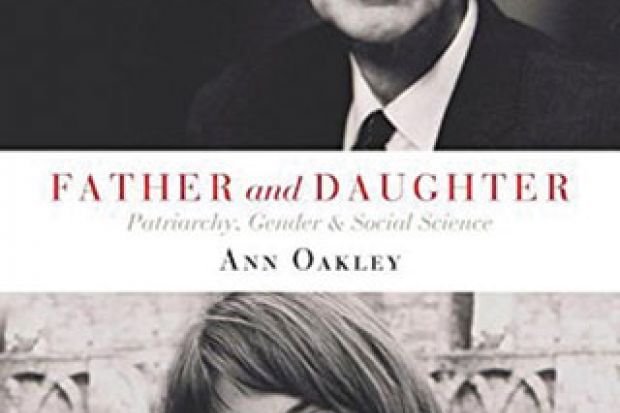This is an intriguing book about the gendered history of social science in Britain and two of its most creative and eminent intellectuals: father Richard Titmuss, welfare state theorist and policy analyst, and daughter Ann Oakley, research sociologist and writer. It does not fit neatly into disciplinary boundaries; instead, it employs a range of methodological perspectives and archival sources. It also offers an emotionally charged memoir of growing up in the home of one of Britain’s most famous “blue plaque” social scientists. Although it is hard to put down – the story is informative as well as engagingly told – its literary and disciplinary boundary transgressions, mixed with intimate personal evidence, make it a difficult book to review.
On one level this is a brilliantly told English middle-class story about post-war Britain, and our knowledge of its main two characters is strangely irrelevant. It is about town and country, dreams of community amid the hustle of modernity, class mobility through gender-segregated, emotionally repressed education offering access to a patriarchal system kept afloat by women in thrall to men of importance – “how to get on in society”, as John Betjeman put it.
It is about political and academic institutions, where men engage in serious theorising and career building and women provide the enabling context as marginal vessels for solving daily practical needs. Now and then, when structural rifts expose societal fault-lines, a new generation of rebellious youth commit intellectual parricide against the values that were ideologically (as well as literally) set in stone by men of “excellence”. As in all good stories, there is both profound insight and revelatory gossip here for those who can remember the times and angrily see them repeating themselves.
At another level, however, Oakley’s book is also a very important contribution to historical and sociological scholarship. It is an original and carefully researched corrective to the existing “business as usual” institutional and intellectual history of conflicts and tensions in the development of sociology, social administration, social policy and the professionalisation of social work. Using personal and institutional archives, statistics and interviews, Oakley presents ample evidence of the sorely neglected role, and mistreatment, of women, as thinkers and researchers in fields in the process of theorisation and professionalisation. The fact that some of these able women suffered under the leadership of Oakley’s own father at the London School of Economics (and more so than she had previously imagined) makes this a powerful corrective to the poverty of some history writing, and courageous, too. Her extensive knowledge of this contested discipline development is impressive and of great importance for the future understanding of welfare policy.
Alongside the above, Oakley also aims to contribute to the sociology of memory. While sensitive to pitfalls in pruned archives and selective recollections, she psychologically draws the reader into her own search for the source of her unhappiness in a family that was outwardly preaching social justice, but was inwardly unequal and short of warmth. Is this memory exaggerated, given how profoundly she admires her father and more grudgingly appraises her mother, perhaps as a defence against not always having treated them with respect? There is no right of reply.
The conflict-ridden triangle of father-mother-child is a longstanding topic in psychoanalysis, and it is a pity that in a book devoted to a multidisciplinary approach, Oakley so quickly dismisses this discipline as “facile” in its attempt to explain her not uncommon pain. Hers were not perfect parents, but she could not have been an easy daughter either; daughters seldom are. In her case, though, her rebellion led to a major redefinition of our understanding of women as part of “the social”, as child-bearers and carers, but also autonomous individuals in search of respect. Her publications outnumber those of her father, and her enduring influence on social change is probably greater.
There is another book to be written here about why it is that women growing up in “middle England”, even highly successful ones, so strongly hold on to life’s personal hurts and to competitive self-deprecation, such as Oakley’s expressed wish that she could write “uncontroversial” and “solid” academic books – surely an unnecessary regret for someone whose work is so scholarly, informative and readable.
Father and Daughter: Patriarchy, Gender and Social Science
By Ann Oakley
Policy Press, 256pp, £13.99
ISBN 9781447318101
Published 22 October 2014
Register to continue
Why register?
- Registration is free and only takes a moment
- Once registered, you can read 3 articles a month
- Sign up for our newsletter
Subscribe
Or subscribe for unlimited access to:
- Unlimited access to news, views, insights & reviews
- Digital editions
- Digital access to THE’s university and college rankings analysis
Already registered or a current subscriber? Login





